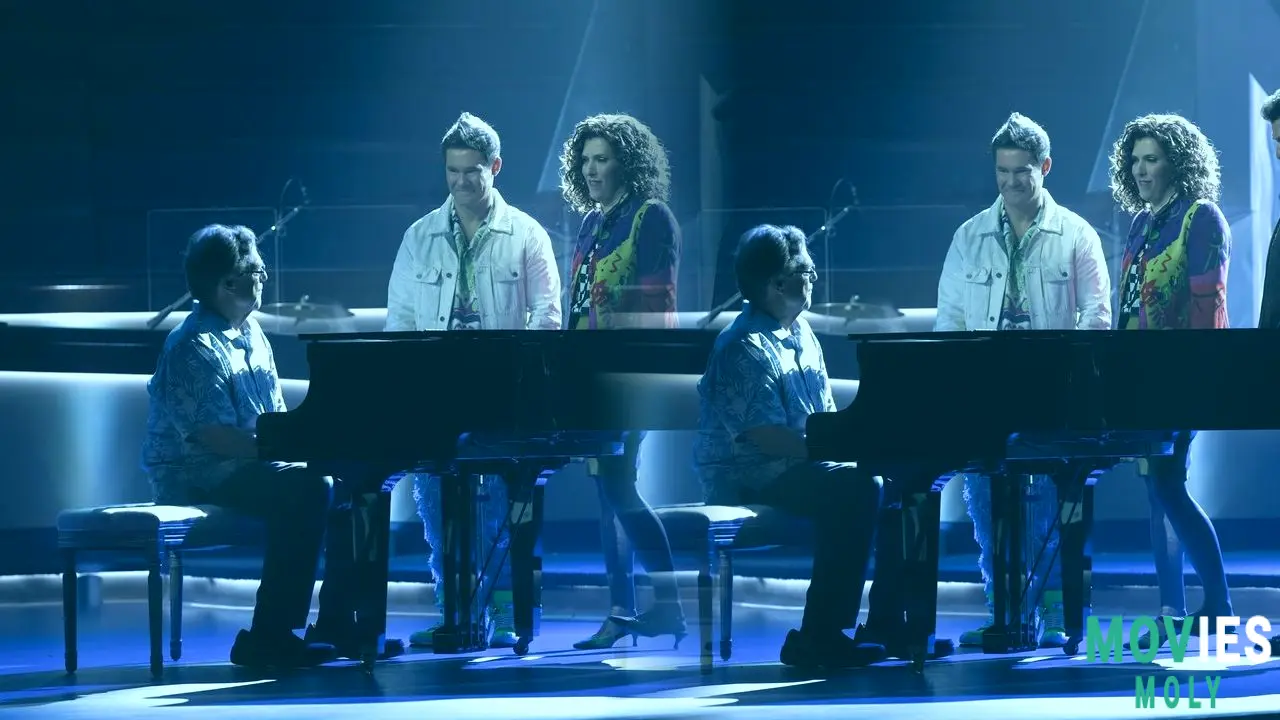By channeling the bombast of Southern televangelism through the lens of drag, camp, and grim familial love, The Righteous Gemstones closed out its four-season run in a way only Danny McBride could — with a praying trio of almost-dead siblings, a gun-toting monkey, and a golden Bible that means everything and nothing at once.
HBO’s The Righteous Gemstones, the irreverent megachurch satire that morphed McBride from raunchy antihero into a full-fledged gospel storyteller, ended Sunday with its most audacious episode yet. Not in terms of sheer spectacle — though it had that, too — but in how it balanced absurdity with emotional resonance, and caricature with character growth. The finale, titled “That Man of God May Be Complete,” gave the Gemstones’ wild ride a send-off that was equal parts clownish and cathartic.
The lavish lake house showdown strips the Gemstones down to their coreMost of the final episode’s chaos unfolds at Galilee Gulch, the Gemstones’ stately vacation home on Lake Murray. This wasn’t just another opulent set for the family to clash in — it was a carefully chosen battleground for the show's final spiritual and physical reckoning. The mansion, the largest single-family residence in South Carolina, even boasted a 16th-century altar-turned-fireplace, which served as a haunting backdrop for the bloodied prayer circle that closed the season.
After a season-long descent into betrayals, exposés, and teeth-grinding schemes, the Syndicate of Sin™ — Jesse (McBride), Judy (Edi Patterson), and Kelvin (Adam Devine) — find themselves under assault by Corey Milsap (Seann William Scott), the Judas to their televangelist last supper. But rather than ending in a tragic demise, the attack becomes a twisted test of faith. When Corey—donning a Michael Jackson costume for some extra flair—storms the mansion, wounds the siblings, and threatens to finish the job, salvation arrives in the most unlikely form:
Dr. Watson, a capuchin monkey with a penchant for smoking and improvising, fetches Jesse’s gun and stops Corey mid-rampage. It’s the kind of deus ex machina that only Gemstones could pull off without it feeling silly. (Okay, maybe a little silly. But in a good way.)
Near-death fakeout forces the siblings to pray without props
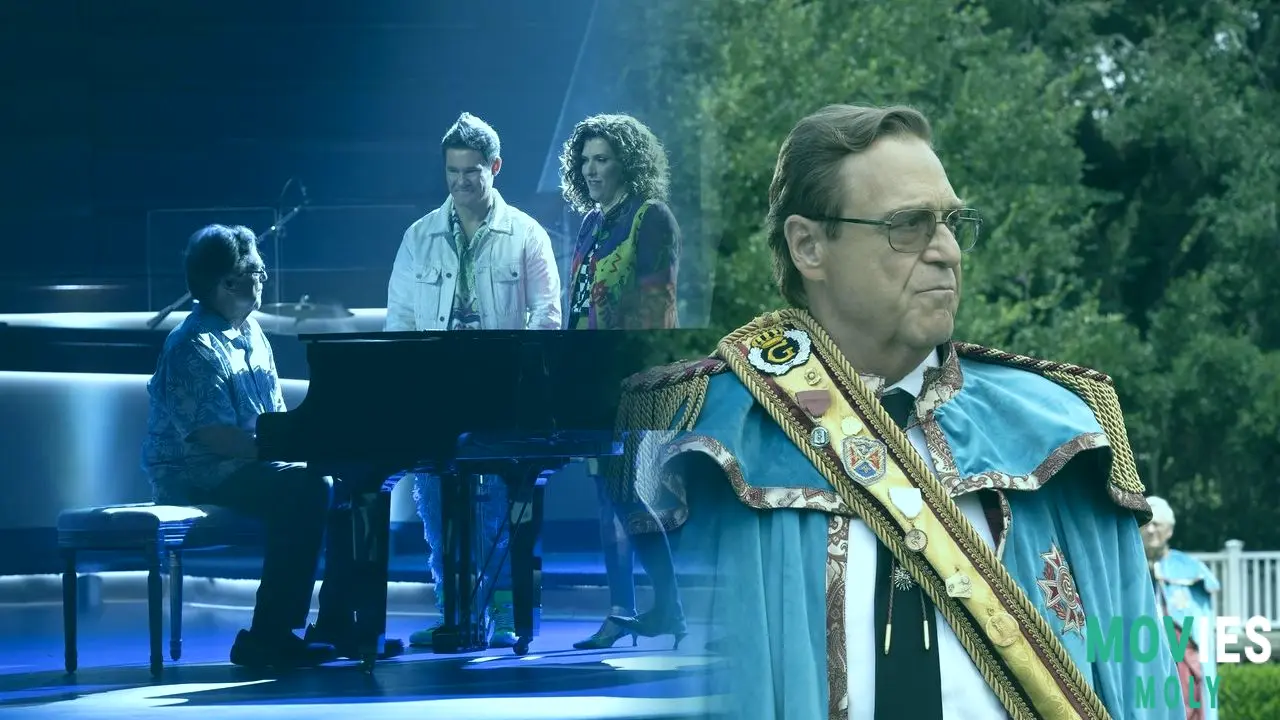
For several agonizing minutes, viewers are led to believe this might be the bloody end for the Gemstones. McBride admits he wanted to “fuck with the audience” a bit, playing on the grim expectation that final seasons often kill off main characters. But instead of martyring them, the show gives Jesse, Judy, and Kelvin a moment of reckoning — one stripped of wealth, spectacle, and sin. No jetpacks. No monster trucks. Just three wounded souls praying for the one who just tried to kill them.
That moment — raw, grounded, and oddly pure — echoes the show's first episode of the season, where ancestral Gemstone Elijah (Bradley Cooper) prays with Confederate soldiers about to be executed. It’s a full-circle miracle made of blood, belief, and biblical irony. As Corey bleeds out, the siblings pray over him. Not as revenge. Not as repentance. But as what they are beneath all the glitter and greed: shepherds, however flawed.
Costume designer Christina Flannery’s work elevates the series’ campy critique
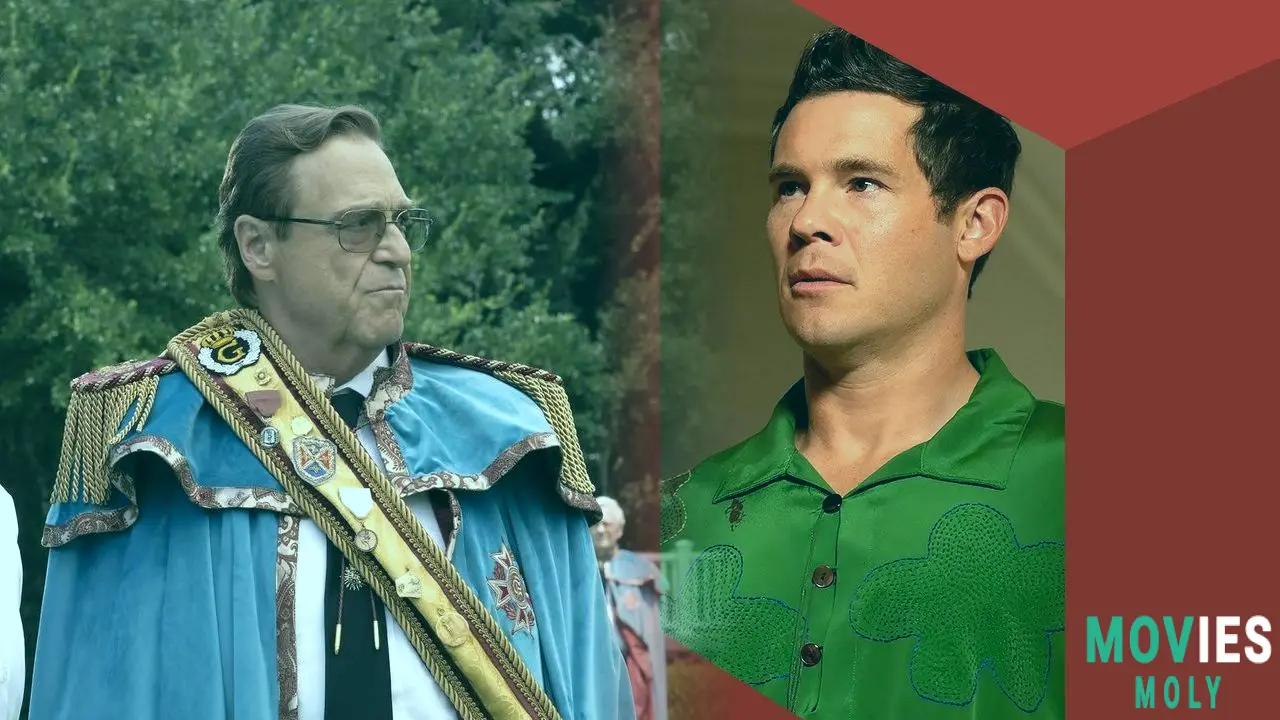
One of the most underappreciated heroes of Gemstones is undoubtedly Christina Flannery, the costume designer whose sartorial wizardry turned every sermon into a runway show. From Jesse’s leather suit melting in the Southern heat to Kelvin’s emerald-studded magicians-in-a-ministry look, the characters’ wardrobes spoke louder than their sermons. Inspired by figures as disparate as Tammy Faye Bakker, Thierry Mugler, and Leigh Bowery, Flannery crafted a visual language that merged televangelism with drag performance.
“They’re always on stage,” Flannery said. And she wasn’t kidding. Even in moments of supposed casualness, the Gemstones dressed like they were about to split the Red Sea with sequins. This flamboyant fabric of illusion was central to the show’s theme: gender, power, and faith as performance. Judy’s 1980s power suits, Amber’s “Republican makeup” glam, and Baby Billy’s oyster-shell ensemble from season three — all these looks punctuated the characters' emotional states and societal roles.
Kelvin’s coming out and Dr. Watson’s mischief mark a hopeful tonal shift
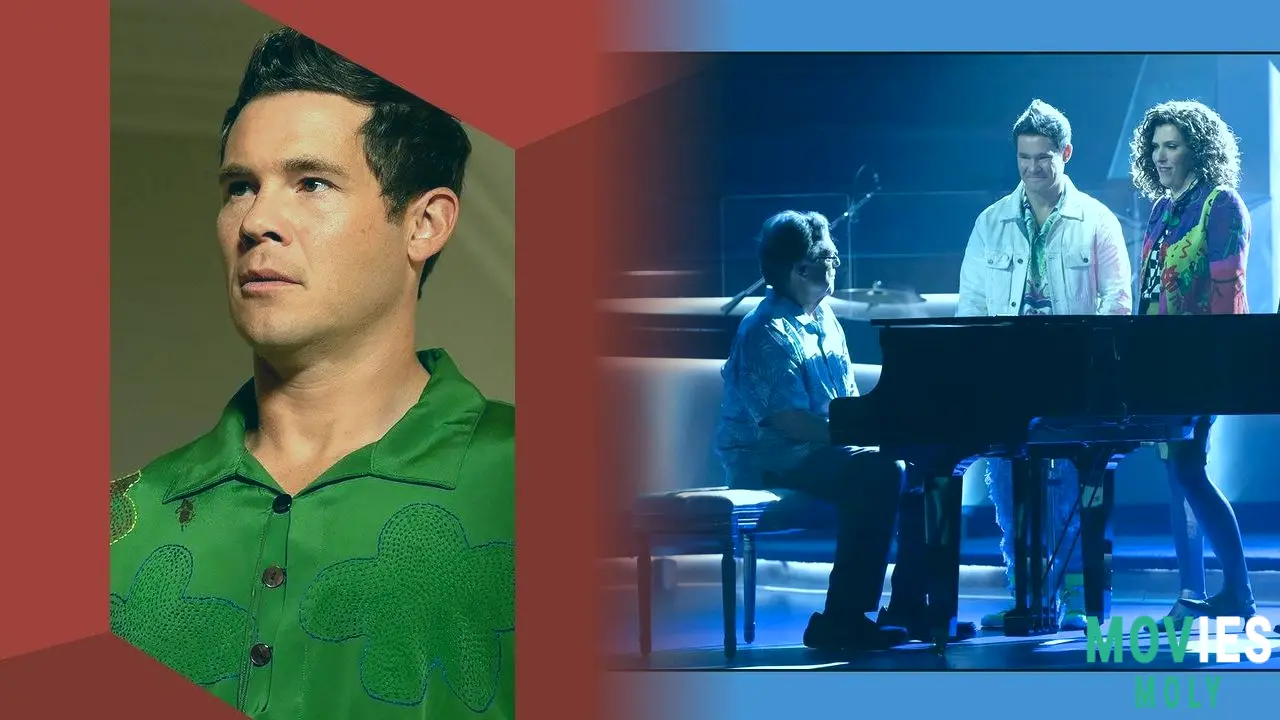
Amid the chaos, Kelvin’s (Adam Devine) journey stands out as one of the most optimistic arcs in a show often drowning in moral mud. His public coming out during the cringe-worthy but combustible Top Christ Following Man competition wasn’t just a character win — it was a statement. In a world that often weaponizes faith against LGBTQ+ identities, Gemstones gave us a fiery bedazzled sermonist who married his boyfriend in a chapel full of fireworks. It’s the kind of ending that doesn’t negate the show's satire but uplifts it.
And then there’s Dr. Watson — the monkey who smokes, masturbates, and saves lives with a glint in his eye. His chaotic interlude at Jason’s Steakhouse, where he delights the crowd while indulging in menthols, is the perfect microcosm of Gemstones itself: irreverent, unpredictable, and somehow affectionate beneath the madness.
Eli’s love for Lori offers closure — and a new beginning on the open sea
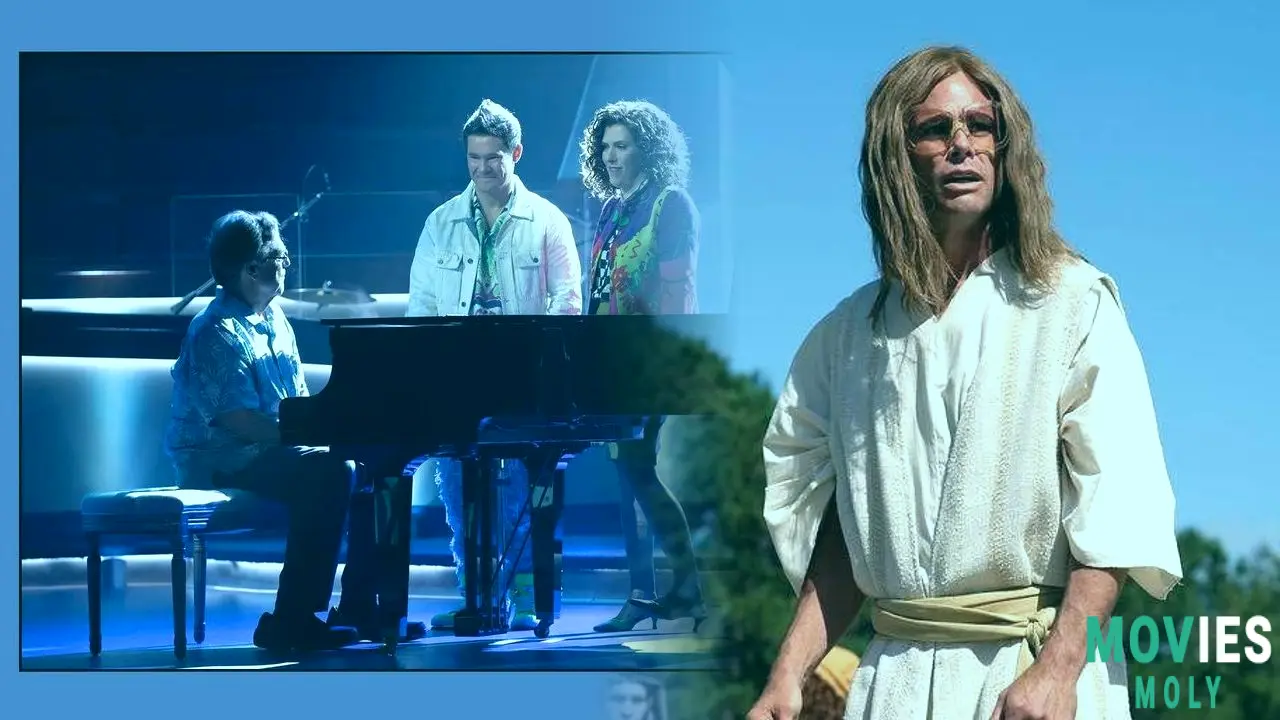
Perhaps the most emotionally surprising thread of the final season was Eli Gemstone’s (John Goodman) romance with Lori (Megan Mullally), the late Aimee-Leigh’s best friend. What the children (and viewers) initially recoil from soon becomes a poignant exploration of grief, loneliness, and moving on. Eli’s decision to live on a sailboat and Lori’s arrival as his “first mate” feels less like a retreat and more like a liberation. After decades of divine duty, Eli finally gets a moment — and a mate — of his own.
Final thoughts: A sacred send-off that lets the Gemstones win one last time
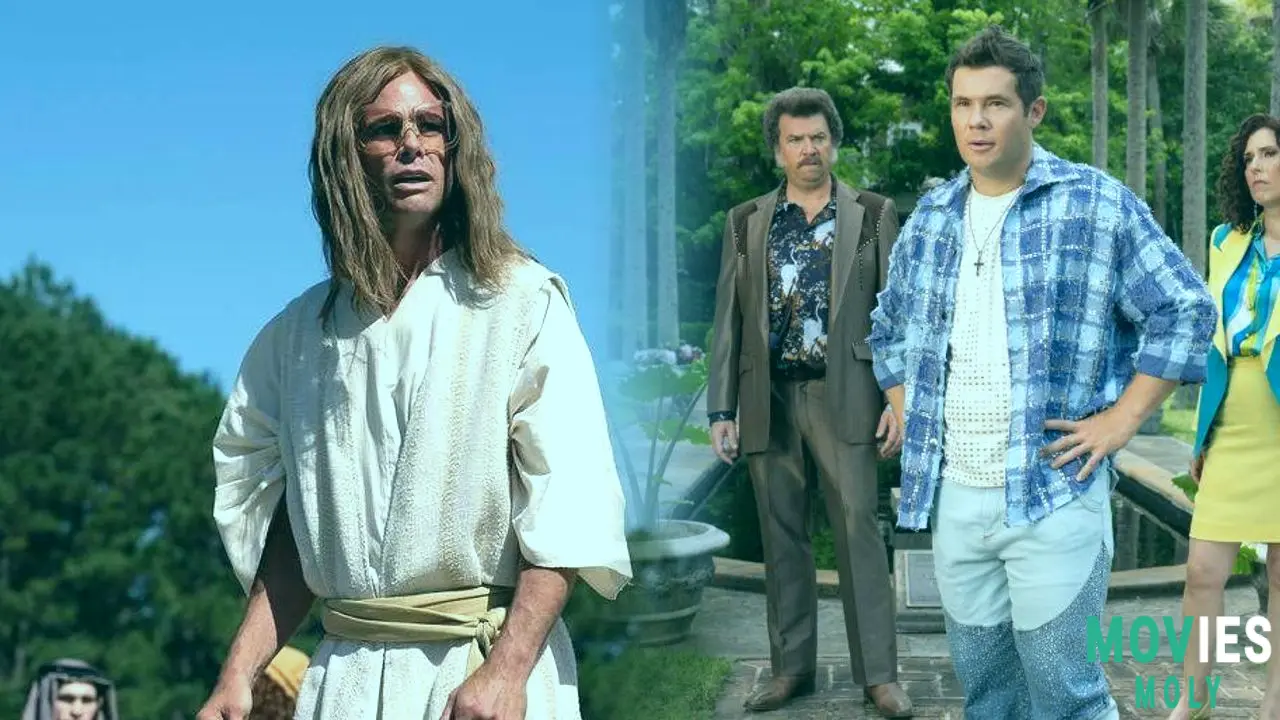
The Righteous Gemstones may have bid farewell to its TV form, but in true Gemstone fashion, it didn’t go quietly into the pews. It closed with a monkey, a prayer, and a promise: that these flawed, flashy, and freakishly faithful characters will keep on preaching, performing, and sparkling in metaphorical (and sometimes literal) gold for as long as someone’s watching.
“Do what you fucking want to them,” Edi Patterson said of the Gemstones’ legacy. “You cannot make them not win.” And win they did — with grace, grit, and a whole lot of glitter.

